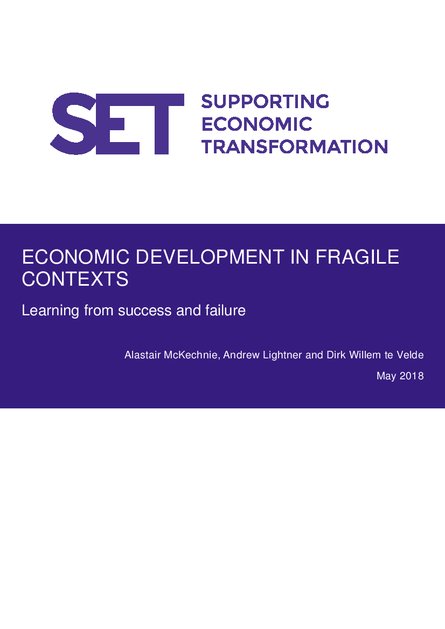
Fragile and conflict-affected developing countries face major challenges in transforming their economies. As with low-income countries generally, some countries affected by fragility experience periods of rapid economic growth – particularly at the end of a conflict – but this growth is typically unsustainable and of low quality.
Promotion of economic transformation is not typically a priority in such states, despite the fact that it may help reduce the risk of future conflict and increase resilience to shocks. As a result, governments of the G7+ group of fragile states are becoming increasing critical of the lack of attention paid by their development partners to issues such as job creation and infrastructure investment.
There have been a number of success cases in some fragile states – such as where political opportunities have arisen in specific sectors at the conclusion of armed conflict. Notable examples include the growth of the telecommunications sector (specifically mobile phones) in Afghanistan after 2001 and the development of cocoa farming in Sierra Leone after 2003.
This paper seeks to understand not only the reasons why economic transformation is so challenging in fragile contexts, but to examine case studies of success. By doing so, we hope to draw out lessons and identify practical steps that can be taken by governments and development partners to replicate these successes and support a sustainable, peaceful path to prosperity for fragile states.